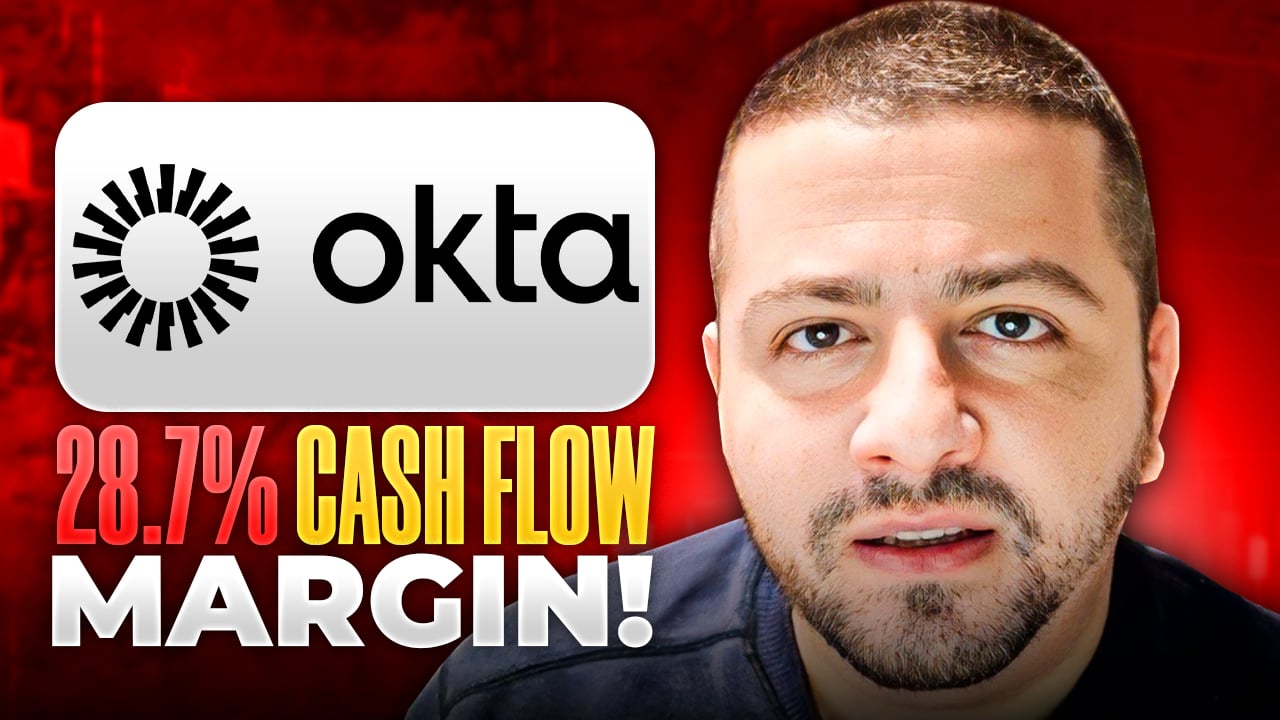Share prices of Okta (OKTA 1.52%) slid following its fiscal 2025 first-quarter earnings report (for the quarter ending April 30) despite the cybersecurity company reporting strong revenue growth and increasing guidance.
Let's dive into the company's most recent results to see why the stock fell and whether or not this is a great time to buy.

NASDAQ: OKTA
Key Data Points
A beat-and-raise quarter
Okta's overall revenue climbed 19% year over year in Q1 to $617 million, while subscription revenue jumped 20% to $603 million. Adjusted earnings per share (EPS) soared from $0.22 a year ago to $0.62. The company had guided for 16% to 17% revenue growth and adjusted EPS between $0.54 and $0.55.
The company's remaining performance obligation (RPO) backlog increased 14% to $3.36 billion. Its current RPO (cRPO) backlog, which is subscription backlog expected to be recognized over the next 12 months, rose 15% to $1.95 billion. Both of these metrics are based on signed contracts and are an indication of future revenue.
Okta's net dollar retention rate, which is how much revenue came from existing customers over the past 12 months, was 111%. This was in line with last quarter and has been on a gradual decline.
The company ended the quarter with 19,100 customers, up from 18,950 at the end of the fourth quarter. Customers with annual contract values (ACVs) over $100,000 came in at 4,550, up from 4,485 a year ago.
Okta forecasted fiscal 2025 second-quarter revenue to be between $631 million and $633 million, representing year-over-year growth of 13% to 14% and adjusted EPS of between $0.60 to $0.61. It is looking for its current subscription backlog to grow by 10% to 11% to a range of $1.955 billion to $1.96 billion.
For its full fiscal year, the company projects revenue of between $2.53 billion and $2.54 billion, representing around 12% revenue growth at the midpoint. Adjusted EPS is expected to come in between $2.35 to $2.40. Previously, the company guided for full-year revenue of between $2.495 billion and $2.505 billion and adjusted EPS in the range of $2.24 to $2.29.
Although Okta raised its guidance, the forecast indicates growth slowing down in the back half of the year to single-digit revenue growth based on its strong start to the year. Management said it was being conservative in its forecast given a stable but challenging macro environment while taking into consideration the potential impact last year's security incident could have.
Last year, Okta had its customer support system hacked and data stolen from its customers who use the system. Given that the company's products are used to help prevent these types of attacks, it obviously was not a good look. Earlier in the year, Caesars Entertainment and MGM Resorts International had their Okta administration systems compromised in a cyberattack as well.
Okta sees adding new customers as its biggest challenge given the current macro environment. It does not expect churn issues and views upselling opportunities, especially selling customer identity solutions to its workforce customer base, as one of its biggest growth opportunities.

Image source: Getty Images.
Time to buy the stock?
Trading at a forward price-to-sales (P/S) ratio of about 6, Okta is inexpensive compared to many cybersecurity companies, as well as from a historical perspective.
OKTA PS Ratio (Forward) data by YCharts
OKTA PS Ratio data by YCharts
However, with slower growth will come a lower multiple and indications of single-digit revenue growth in the back half of the year would justify its current valuation.
The company does appear to be conservative with its forecast, but the impact of the successful cybersecurity attack on its own support system could have an effect on signing up new customers and also do some lasting harm to its reputation. The company should continue to do well with large enterprise customers, but I could see continued weakness in the small and medium business (SMB) part of the market given these security issues, as these companies may be more willing now to opt for a bundled solution from Microsoft. The main reason is that large enterprises often like best-of-breed solutions and try to avoid relying on one vendor too much, while SMB customers could look at the incidents as a reason to get a cheaper bundled offering from Microsoft.
As such, even with the attractive valuation, I'd stay on the sidelines and look for any signs that growth could accelerate before buying the cybersecurity stock.






